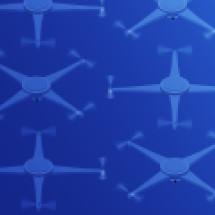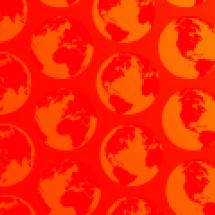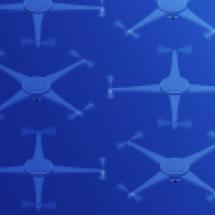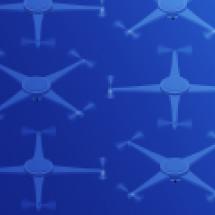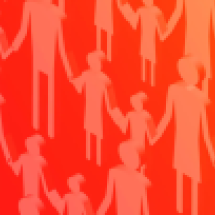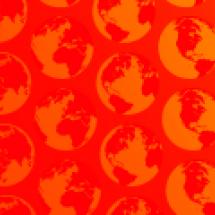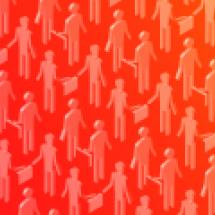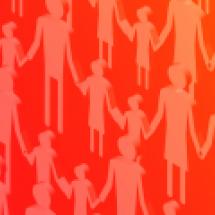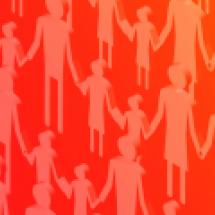All
Aerial surveillance can impose widespread systematic monitoring on specific individuals, groups, and populations infringing upon their right to privacy and associated freedoms, including freedoms of assembly, movement, and protest.
AI has the potential to revolutionise societies, however there is a real risk that the use of new tools by states or corporations will have a negative impact on human rights.
Unique data, generated from characteristics of humans, may be used to track and profile people across their lives.
Our data stored in the cloud is often sought after by law enforcement agencies. Increasingly, it is obtained using ‘cloud extraction technologies’.
Governments compel companies to store data on their customers and the data they generate through using communications services.
Communications Surveillance Technology
As digital communications grow, governments continue to seek new ways of getting access to content and metadata.
Effective competition is necessary for privacy and innovation. Increasingly the digital economy is characterised by a few companies in dominant positions. These companies are able to impose terms and conditions that exploit our data and violate our freedoms.
The global counter-terrorism agenda is driven by a group of powerful governments and industry with a vested political and economic interest in pushing for security solutions that increasingly rely on surveillance technologies at the expenses of human rights.
The long arm of governments now reach across their borders, and the safeguards rarely extend to data in other jurisdictions.
Protecting and defending individuals, devices and networks should form the basis of any cyber security strategy.
Democratic engagement is increasingly mediated by digital technology, from campaigning to election results transmission. These technologies rely on collecting, storing, and analysing personal information to operate. They raise novel issues and challenges for all electoral stakeholders on how to
The Data Interception Environment (DIE) is a tool that you can use to analyse how your data is being used by app developers and third parties. It allows you to see how apps are sending your data from your device back to the company or to third parties.
Data Protection l aws seek to protect people's data by providing individuals with rights over their data, imposing rules on the way in which companies and governments use data, and establishing regulators to enforce the laws.
DNA holds the key to a person’s identity and as such must be protected with the utmost care.
Drones surveillance enables widespread and systematic monitoring and collection of detailed data of individuals’ activities and movements, posing a serious threat to personal privacy and associated freedoms.
The use of technology and data in the realisation of economic, social and cultural rights raises, among others, some key concerns in relation to the protection, respect and promotion of the right to privacy.
Facial Recognition is a technology that matches captured images with other facial images held, for example, in databases or "watchlists". It is an extremely intrusive form of surveillance and can seriously undermine our freedoms and eventually our society as a whole.
Financial institutions handle huge amounts of important information about their customers, and they are increasingly being required to collect information that far exceeds their legitimate purposes in order to assist governments and companies to build profiles.
The General Data Protection Regulation (GDPR) is the EU’s data protection law.
Covert manipulation of and interferences with peoples' devices and software creates significant surveillance capabilities.
Reproductive rights are necessary for bodily autonomy. Bodily autonomy is necessary for equality.
As development and humanitarian organisations deploy new technologies and make use of data-intensive systems in their programmes, they must consider what their mandate of “Doing no harm” entails in the digital age.
In its rush to connect everything, industry increases insecurity and generates more data beyond people's control.
Location and Geographic Surveillance Tech
Mass surveillance can subject a population or significant component thereof to indiscriminate monitoring, involving a systematic interference with people’s right to privacy and all the rights that privacy enables, including the freedom to express yourself and to protest.
Your personal data could be used to target you with information and adverts to an unprecedented degree of personalisation.
There are few places in the world where an individual is as vulnerable as at the border of a foreign country.
Mobile phone extraction tools enable police and other authorities to download content and associated data from people’s phones. This can apply to suspects, witnesses, and even victims of crime – often without their knowledge or consent. Mobile Phone Extraction (MPE) involves the use of ‘push-button’
The right to privacy is universal. Living with a disability should never preclude the full enjoyment of fundamental human rights.
Advances in technology significantly advance the capabilities of police, with few safeguards and no transparency.
Surveillance technologies are radically transforming the ability of authorities to monitor civic spaces that see the space around them increasingly shrinking
Intrusive surveillance technology is increasingly used during protests around the world having a chilling effect to their freedom of assembly and association.
Accessing public services should not mean signing up to systems of surveillance.
Governments are collaborating with private companies, often with very little transparency. Here is why PI is concerned about surveillance outsourcing and other forms of public-private partnerships, and why together we must urgently expose them.
Wealthy governments increasingly push and enable other governments to deploy advanced surveillance capabilities without safeguards.
The mandatory registration and identification of all mobile phone users purchasing a pre-paid SIM card.
Cities full of sensors that monitor peoples' activities, generating intelligence for use by companies and governments.
You might think you own your phone - but there is data on there you can't access, you can't delete, and possibly is being silently leaked to companies you've never heard of.
The data generated through peoples' use of social media becomes valuable intelligence to others, who want to monitor, profile, and manipulate.
Accessing social protection programmes should not mean signing up to systems of surveillance.
There are few places in the world where an individual is as vulnerable as at the border of a foreign country.
Surveillance cameras and facial recognition are used to monitor public and private spaces and to identify people, as is becoming both more pervasive and more invasive.
Workers are facing unprecedented surveillance from their employers and the platforms they work for. Under the guise of productivity, efficiency and economic incentive, employers and platforms are deploying dehumanising and invasive surveillance tools. These can capture workers' every move and even

